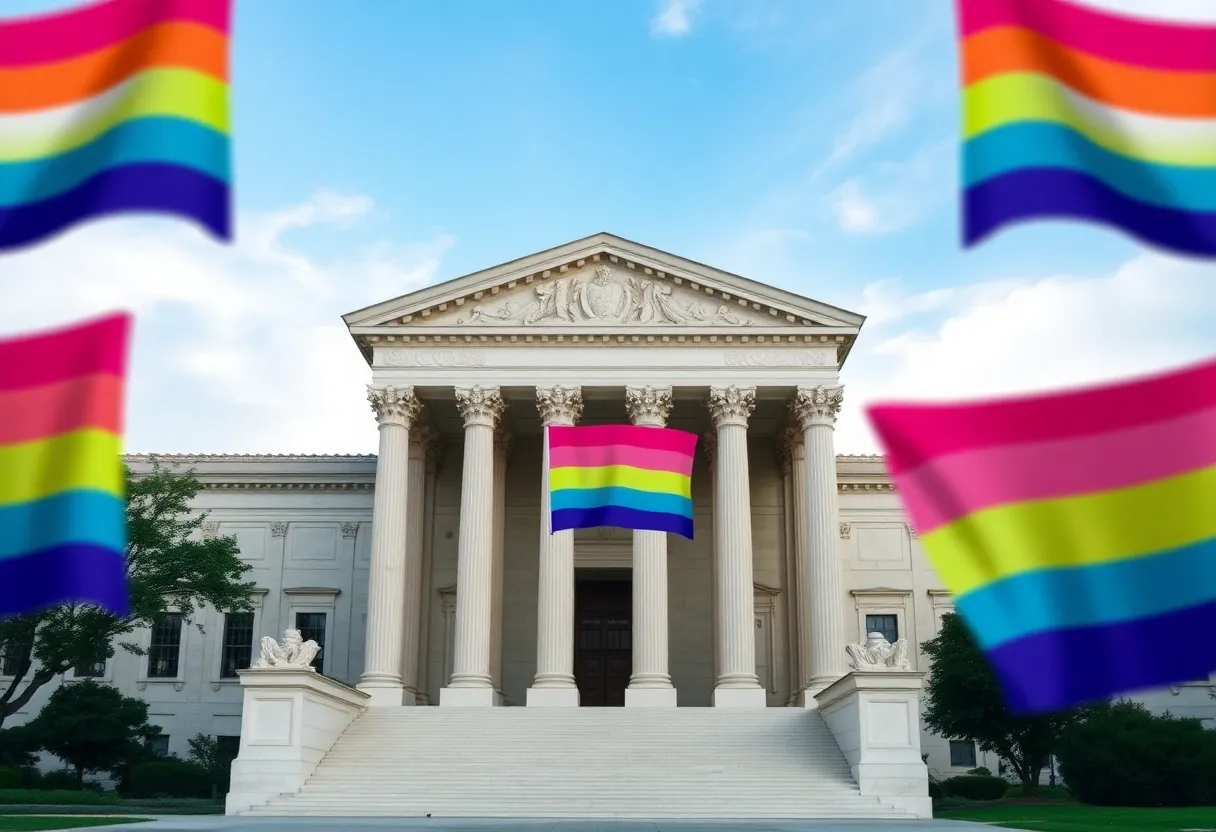News Summary
The Supreme Court has upheld Tennessee’s law banning puberty blockers and hormone therapy for transgender minors in a pivotal 6-3 ruling. The decision comes amidst widespread debate on transgender healthcare access, with dissenting opinions raising concerns about potential harm to transgender youth. This ruling reflects ongoing national discussions around the legal and medical implications of transgender rights, leaving important questions about parental rights and state regulations unanswered.
Supreme Court Greenlights Controversial Tennessee Law on Transgender Minors
In a significant ruling, the Supreme Court has upheld Tennessee’s law banning the use of puberty blockers and hormone therapy for transgender minors, drawing mixed reactions from various quarters. This 6-3 decision indicates that the law does not infringe on the Fourteenth Amendment’s equal protection clause, marking a pivotal moment in the ongoing conversation surrounding transgender healthcare.
The Case Behind the Decision
The case, known as U.S. v. Skrmetti, was brought forth by three transgender minors and their families who sought to challenge the state law. Interestingly, the Biden administration participated as a namesake plaintiff, employing a law that allows the president to join lawsuits concerning the Equal Protection Clause. The Tennessee law, identified as SB1, forbids any medical treatments aimed at helping minors transition genders or easing the distress caused by discordance between their gender identity and biological sex.
Chief Justice John Roberts asserted that the law does not assign classifications that would necessitate heightened judicial scrutiny, indicating the court’s support for the state’s right to enforce these restrictions.
Dissenting Opinions and Broader Implications
However, not everyone is on the same page. Justice Sonia Sotomayor, in her dissent, expressed profound concerns that the court’s ruling could lead to “untold harm” to transgender children and their families. Her statement underscores the gravity of this decision, pointing out that it could set a troubling precedent that may influence similar laws in at least 24 other states that have enacted comparable bans.
In response to the ruling, Tennessee’s Attorney General, Jonathan Skrmetti, celebrated the decision as a victory aimed at safeguarding children from making irreversible choices they may not fully comprehend. This emphasis on protecting minors resonates with many who debate the safety and medical appropriateness of hormonal treatments for transitioning youth.
The National Debate on Transgender Healthcare
This ruling follows an extensive national dialogue about the risks and benefits of medical treatments used for transgender youth. The law garnered bipartisan support when it passed through Tennessee’s legislature, reflecting a shared concern over the potential risks involved with these procedures. Interestingly, the Department of Justice under President Donald Trump shifted its stance to support Tennessee’s position after initially opposing it, suggesting the political nuances surrounding this subject matter are far from clear-cut.
The Court’s Perspective
Delving deeper into the ruling, the Supreme Court utilized what is known as “rational basis review,” which is the lowest bar for judicial review. Chief Justice Roberts reasoned that the state has a valid interest in ensuring that minors are capable of understanding their biological sex before making meaningful decisions about their gender identity.
Justice Clarence Thomas also weighed in with a concurring opinion, questioning the reliability of medical recommendations from various healthcare organizations. This perspective adds another layer of complexity to the future discourse around transgender healthcare for minors.
Looking Ahead
The ruling doesn’t completely resolve all issues regarding state bans on transgender-related healthcare, leaving open questions about parental rights in healthcare decisions. Many advocates for transgender rights view this decision as a significant setback that may instigate further challenges to related policies, encompassing areas like sports participation and overall healthcare access for transgender individuals.
Major medical organizations, including the American Academy of Pediatrics, have criticized the ruling as detrimental to minors seeking necessary medical care. In the wake of this decision, the ramifications will likely reverberate through both state and national policies concerning transgender healthcare and rights.
This decision marks the second significant time the Supreme Court has addressed issues related to transgender rights, following the landmark Bostock v. Clayton County ruling in 2020, which offered protections against employment discrimination based on sexual orientation and gender identity.
As the dust settles on this landmark ruling, the conversation surrounding transgender rights and healthcare access continues, hinting that more challenges and changes may lie ahead.
Deeper Dive: News & Info About This Topic
- SCOTUS Blog: Tennessee’s Ban on Medical Treatments for Transgender Minors
- Washington Post: Supreme Court Ruling on Transgender Care
- NBC News: Court Upholds Tennessee’s Ban on Transgender Youth Medical Care
- BBC News: Tennessee Transgender Care Law Upheld
- USA Today: Supreme Court’s Decision on Transgender Minors
- Wikipedia: Transgender Healthcare
- Google Search: Transgender Healthcare Debate
- Google Scholar: Transgender Minors Medical Care
- Encyclopedia Britannica: Transgender Healthcare
- Google News: Transgender Rights

Author: STAFF HERE WILLIAMSBURG WRITER
The WILLIAMSBURG STAFF WRITER represents the experienced team at HEREWilliamsburg.com, your go-to source for actionable local news and information in Williamsburg, James City County, and beyond. Specializing in "news you can use," we cover essential topics like product reviews for personal and business needs, local business directories, politics, real estate trends, neighborhood insights, and state news affecting the area—with deep expertise drawn from years of dedicated reporting and strong community input, including local press releases and business updates. We deliver top reporting on high-value events such as Williamsburg Farmers Market, Yorktown Market Days, and Busch Gardens Food & Wine Festival. Our coverage extends to key organizations like the Greater Williamsburg Chamber of Commerce and Colonial Williamsburg Foundation, plus leading businesses in education and hospitality that power the local economy such as College of William & Mary, The Williamsburg Winery, and Sodexo. As part of the broader HERE network, including HEREVirginiaBeach.com, we provide comprehensive, credible insights into Virginia's dynamic landscape.


